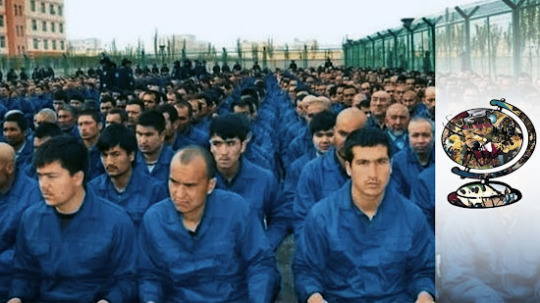Don't wanna be here? Send us removal request.
Text
How Great Was Tesla?

Nikola Tesla was a prolific inventor who made numerous important contributions to science and engineering. Some of his most notable inventions and discoveries include:
Alternating current (AC) power system: Tesla's design for the AC power system revolutionized the way electricity is distributed and used, making it possible to transmit power over long distances with minimal loss of energy.
Tesla coil: The Tesla coil is a type of resonant transformer that produces high-voltage, low-current, high-frequency alternating-current electricity. It is used in various applications, such as wireless communication, lighting, and medical equipment.
Wireless communication: Tesla made important contributions to the development of wireless communication, including the invention of the Tesla coil and the Tesla oscillator, which laid the foundation for modern radio technology.
X-rays: Tesla made some early discoveries related to X-rays, including the development of a vacuum tube that could produce X-rays and the invention of the Tesla shield, which was used to protect X-ray operators from harmful radiation.
Robotics: Tesla had a keen interest in robotics and developed several innovative ideas and designs for machines that could perform various tasks, including a remote-controlled boat, a mechanical oscillator, and a self-guiding torpedo.
Overall, Tesla's inventions and discoveries have had a profound impact on many areas of science and technology, and his contributions continue to be studied and celebrated today.
There are many stories and legends surrounding Nikola Tesla, some of which suggest that he had a secret or hidden invention that he never revealed to the public. However, there is no concrete evidence to support these claims, and most scholars and experts believe that they are likely just myths or rumors.
That said, there are some aspects of Tesla's life and work that remain mysterious or poorly understood, such as his interest in certain esoteric and occult subjects, his unconventional personal life, and his apparent tendency towards secrecy and isolation in his later years.
Despite these uncertainties, it is important to recognize the many significant contributions that Tesla made to science and technology during his lifetime, which have had a lasting impact on our modern world. Whether or not he had any secret inventions or hidden knowledge, his legacy as a brilliant inventor and innovator is undeniable.
12 notes
·
View notes
Text
Art of Cinematography

Cinematography is the art and technique of capturing visual images on film or digital media. It is an essential aspect of filmmaking, as it is responsible for the overall look and feel of a movie. The cinematographer, also known as the director of photography (DP), works closely with the director to create the visual style of the film. In this blog, we will explore the world of cinematography and its importance in filmmaking.
History of Cinematography
The history of cinematography dates back to the early 19th century when inventors started experimenting with moving images. However, it was not until the late 1800s that the first motion picture cameras were developed. Since then, cinematography has evolved significantly, from black and white silent films to full-color movies with surround sound.
The Importance of Cinematography
Cinematography is vital to filmmaking as it helps to convey the emotions and atmosphere of a scene. It also sets the tone for the entire film and can create a specific mood or feeling. The cinematographer must work closely with the director to ensure that the visuals complement the story and enhance the narrative.
The cinematographer uses various techniques to achieve the desired look and feel of a movie. These techniques include framing, lighting, camera movement, and color grading. They must also consider the location, time of day, and weather conditions when planning and executing shots.
Framing
Framing is one of the essential elements of cinematography. It refers to how the shot is composed, including the placement of the subject, camera angle, and the amount of space around the subject. The cinematographer must consider the emotional impact of each shot and use framing to convey the desired mood or feeling.
Lighting
Lighting is another essential element of cinematography. It can create a sense of depth and dimension, highlight certain objects or people, and create a specific atmosphere. The cinematographer must use lighting to achieve the desired effect and ensure that the lighting complements the story.
Camera Movement
Camera movement is another critical element of cinematography. It includes the use of tracking shots, crane shots, and handheld shots. Camera movement can add energy and excitement to a scene or create a sense of intimacy or vulnerability. The cinematographer must use camera movement to enhance the narrative and create a visually engaging film.
Color Grading
Color grading is the process of altering the colors in a shot to create a specific look or mood. It can also be used to create a consistent color palette throughout the film. The cinematographer must work closely with the colorist to achieve the desired look and feel of the film.
Conclusion
Cinematography is a vital aspect of filmmaking that can make or break a movie. The cinematographer must work closely with the director to create the visual style of the film and use various techniques to achieve the desired look and feel. Framing, lighting, camera movement, and color grading are just a few of the many elements that the cinematographer must consider when creating a visually engaging film. Without cinematography, movies would lack the emotional impact and atmosphere that make them such a powerful medium.
1 note
·
View note
Text
What is Quantum Physics: anyone can understand

Quantum physics is a branch of physics that explores the behavior of matter and energy at the atomic and subatomic level. It is a fascinating field that challenges our classical understanding of the physical world and has led to numerous technological advancements in areas such as computing and telecommunications.
At the heart of quantum mechanics is the concept of wave-particle duality, which suggests that subatomic particles, such as electrons and photons, can behave both as waves and particles depending on how they are observed or measured. This means that an electron can exist in multiple places at once, and its position can only be described probabilistically.
Another fundamental principle of quantum mechanics is the uncertainty principle, which states that the more precisely the position of a particle is known, the less precisely its momentum can be known, and vice versa. This means that there is a fundamental limit to how accurately we can measure the properties of subatomic particles.
Quantum mechanics also introduces the concept of entanglement, where two particles can become intertwined in such a way that their states are dependent on each other, even when separated by large distances. This phenomenon has been observed experimentally and has led to the development of quantum teleportation, where information can be transmitted instantaneously over long distances.
One of the most exciting areas of quantum physics is quantum computing, which takes advantage of the principles of quantum mechanics to perform certain calculations much faster than classical computers. Quantum computers use quantum bits, or qubits, which can exist in multiple states simultaneously, allowing for exponentially more computational power.
Despite the many technological advancements that have been made possible by quantum physics, there are still many mysteries to be unraveled. For example, the nature of dark matter and dark energy, which are thought to make up the majority of the universe, remains a mystery. Additionally, the search for a theory of everything, which would unify quantum mechanics with general relativity, is still ongoing.
In conclusion, quantum physics is a fascinating and complex field that challenges our understanding of the physical world. Its principles have led to numerous technological advancements, and there is still much to be learned and discovered. As we continue to unravel the mysteries of the quantum world, we may gain a deeper understanding of the universe and our place in it.
0 notes
Text
6 Authentic Ways to Make Real Money

Making money is a topic that everyone is interested in. Whether you want to supplement your income or make a full-time living, there are several ways to make money. In this blog, we will explore some practical ways to make money.
Freelancing
Freelancing is a popular way to make money online. It involves offering your services to clients on a project-by-project basis. Freelancing can be done in a variety of fields, including writing, graphic design, web development, and social media management. You can find freelance work on websites like Upwork, Freelancer, and Fiverr.
Online Surveys
Another way to make money online is by participating in online surveys. Many companies are willing to pay for your opinion on their products or services. You can sign up for online survey websites like Swagbucks, Survey Junkie, and Vindale Research to get paid for taking surveys.
Selling Products Online
You can also make money by selling products online. You can sell physical products, such as clothing, books, or handmade crafts, on websites like Etsy or Amazon. Alternatively, you can sell digital products like ebooks or courses on your own website or platforms like Udemy or Skillshare.
Renting Out Your Property
If you have a spare room or property, you can make money by renting it out. You can use websites like Airbnb, VRBO, or HomeAway to list your property and find renters.
Investing
Investing can be a lucrative way to make money in the long run. You can invest in stocks, real estate, or mutual funds. However, investing involves some risk, so it's important to do your research and consult with a financial advisor before investing.
Driving for Ride-Sharing Services
If you have a car and some free time, you can make money by driving for ride-sharing services like Uber or Lyft. You can work on your own schedule and earn money by providing transportation to customers.
Conclusion
Making money requires effort, time, and sometimes, money. However, with dedication and persistence, you can find ways to make money that fit your skills and interests. Freelancing, online surveys, selling products online, renting out your property, investing, and driving for ride-sharing services are just a few examples of ways to make money. Remember to research your options and choose the best fit for you.
0 notes
Text
China's Cruelty on Uyghurs Muslims

The situation of Uyghur Muslims in China is a complex and deeply concerning issue. There have been numerous reports of human rights abuses and acts of cruelty against this ethnic minority group, including forced labor, mass internment, and cultural suppression.
The Chinese government has been accused of detaining up to one million Uyghur Muslims in internment camps, where they are reportedly subjected to forced labor, torture, and political indoctrination. Additionally, there have been reports of mass surveillance and discrimination against Uyghurs in everyday life, including restrictions on religious practices and cultural expression.
These actions have been widely condemned by the international community, with many countries and human rights organizations calling on China to end the persecution of Uyghur Muslims and to allow independent investigations into the allegations of abuse. However, the Chinese government has denied any wrongdoing and continues to defend its policies towards the Uyghur population.
It is important to acknowledge and raise awareness about the plight of the Uyghur Muslims and to call for action to address this ongoing humanitarian crisis.
It is important to acknowledge the severity of the situation and to raise awareness about the plight of the Uyghur Muslims. It is also essential to call for action to address this ongoing humanitarian crisis and to support efforts to protect the human rights and dignity of all people, including the Uyghur community in China.
China has been to cruel to the world. Different varients of SARS including Covid-19, cruelty on all kind of animals. Tyrants raping pregnent muslim womens, feeding pork and alcohol and unimaginable torture and alot of treats in future to the world.

Imagine being in detention camp and getting torture for no reason for years.
where are all the human rights activists of the world? No doubt the world is so fake.
0 notes
Text

Why Muslims Fast During Ramadan?
Ramadan is a month of spiritual reflection and worship for Muslims around the world. It is a time of fasting, prayer, and charitable giving, and it is considered one of the most important months in the Islamic calendar. In terms of making the most out of the month and creating a beautiful Ramadan, here are a few tips:
Make a plan: Before the start of Ramadan, make a plan for how you want to spend your time during the month. This could include setting spiritual goals, planning out your fasting schedule, and scheduling time for extra prayers or recitation of the Quran.
Create a peaceful environment: Set the tone for a beautiful Ramadan by creating a peaceful environment in your home. This could include decluttering your space, adding some greenery or flowers, and playing calming music or recitation of the Quran.
Focus on self-reflection: Use the month of Ramadan to reflect on your spiritual journey and work on self-improvement. This could involve setting personal goals, practicing gratitude, and seeking forgiveness for past mistakes.
Connect with others: Ramadan is also a time to connect with others in the community. Attend iftar dinners or organize one with family and friends. Participate in charitable activities, such as donating to a food bank or volunteering at a local shelter.
Take care of yourself: Fasting can be challenging, so it's important to take care of yourself during the month. Stay hydrated, eat nutritious meals during suhoor and iftar, and take breaks when needed.
By following these tips, you can create a beautiful Ramadan that is filled with spirituality, reflection, and community.
The Quran, the holy book of Islam, was revealed to the Prophet Muhammad (peace be upon him) over a period of 23 years, starting in 610 CE and continuing until his death in 632 CE. The first revelation of the Quran occurred during the month of Ramadan, which is the ninth month of the Islamic calendar.
According to Islamic tradition, the Angel Gabriel appeared to Prophet Muhammad while he was meditating in a cave near Mecca, and commanded him to recite the words that would become the first verses of the Quran. This event, known as the "Night of Power" (Laylat al-Qadr), is believed to have occurred during the last ten days of Ramadan.
From that point on, the revelation of the Quran continued intermittently over the course of 23 years, with the Prophet Muhammad receiving verses in response to various events and situations in the early Muslim community. The complete text of the Quran was compiled into its current form shortly after the Prophet's death and has been preserved ever since as the central religious text of Islam.
1 note
·
View note